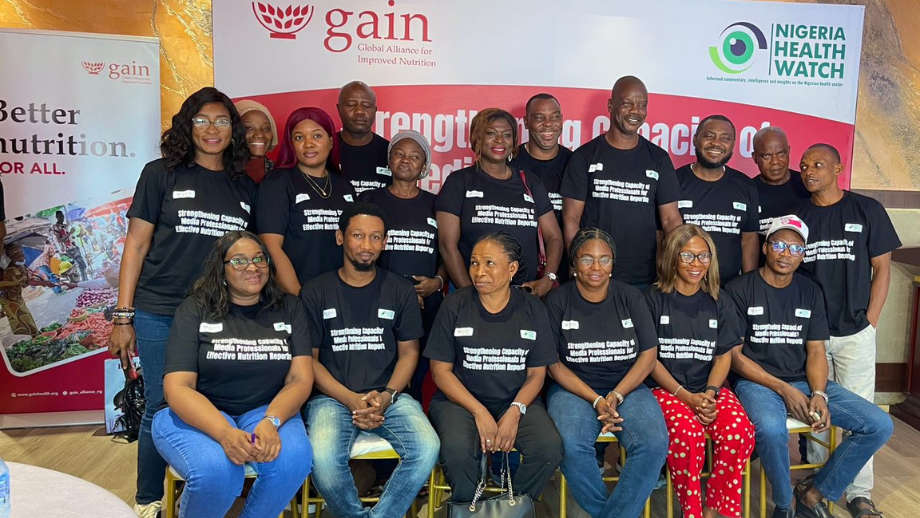
The Federal Ministry of Information has called on the media to intensify efforts in its advocacy of food nutrition.
The call was made on Saturday by the ministry’s Permanent Secretary, Dr. Ngozi Onwudiwe, at a two-day training of journalists on "effective nutrition reporting to address malnutrition and improve the health and wellbeing of citizens."
The training was organized by the ministry with support from the Global Alliance for Improved Nutrition (GAIN).
Dr. Onwudiwe reminded the media of their critical role in advocacy and awareness creation and said the training was designed to strengthen journalistic capacity for impactful nutrition reportage.
She was represented by Sunday Baba, the ministry’s Director of Public Communication and National Orientation.
Baba expressed the government’s commitment to reducing malnutrition in Nigeria, to improve nutritional indices and reverse Nigeria’s rating as the country with the second-highest number of malnourished children in the world.
In other remarks, GAIN’s Country Director, Micheal Ojo stressed the need for journalists to have a strong knowledge of nutrition, to enable them to take actions that would address malnutrition.
This, according to him, would enable media practitioners to challenge the government, policymakers, and development partners in taking proactive steps toward addressing the scourge of malnutrition.
Ojo said that holding stakeholders accountable largely depends on the journalists’ understanding of the issues impacting food systems and good nutrition in communities.
“We do not want journalists to only report what is happening in the nutrition space but also challenge duty bearers, including development partners and hold us accountable for our actions or inactions.
“We also need to work in synergy with relevant stallholders in the nutrition space to make the needed impact, which is why our partnership with the media is waxing stronger,” he said.
A consultant nutritionist, Collins Akanno highlighted the need for the media to use data evidence while reporting stories, especially about nutrition and food security.
Akanno opined that data serves as a foundation for informed journalism, adding that it validates claims, strengthens, and adds credibility and authority to any argument.
“Accurate reporting on the effects of child malnutrition, backed up by professional insights and success stories can lead to an increase in public support due to greater public knowledge and concern.
“The public support for example may eventually persuade lawmakers to ban street food vendors from selling near schools, which will significantly improve child nutrition and encourage a healthier environment.’’
Akanno further stressed the need to engage relevant stakeholders to synergize their approach in addressing nutrition challenges, This, he said would create significant changes in the nutrition and well-being of Nigerians.
According to a Food Consumption and Micronutrients Survey in 2021, Nigeria was rated as the second worst-hit country with malnutrition after India. The survey indicated a surge in the number of malnourished children in the country from seven percent to 12 percent within five years.


